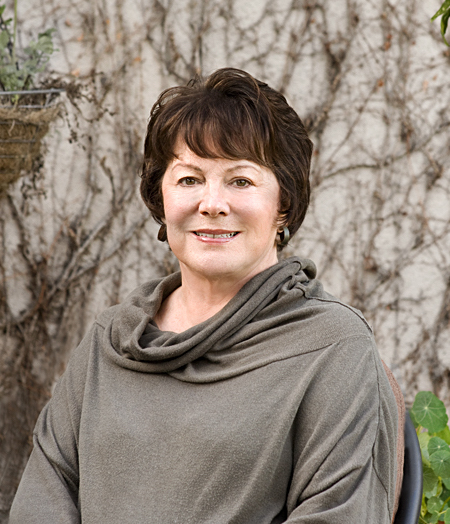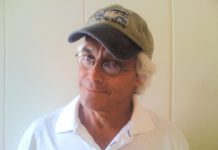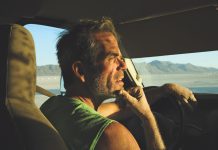Education in the Time of COVID-19

By Jean Hastings Ardell
Some would say that the great American experiment in democracy is at a pivotal moment. Actually, someone did say that: Harvard professor Cornel West speaking to CNN’s Anderson Cooper on Aug. 28. The question being: “Can our nation survive the innate racism that has been woven through the fabric of our history since our founding?”
If you’ve grown weary of the debate over systemic racism, consider that our upcoming generation wants answers and action, and they want it now. They’re the ones who are out demonstrating. In Laguna Beach, they’re the ones who organized the coalition that presented “An Open Letter to the Laguna Beach Unified School District Board of Education,” dated Aug. 1. The petition calls upon the LBUSD to “actively combat racism … in our community and beyond” and included the signatures of more than 200 Laguna Beach High School students, alumni, parents, teachers, and community members.
Despite the national news coverage of systemic racism, when it comes to our police departments and public schools, I think that’s a local issue best resolved by an engaged community. That so many teenaged locals are involved despite our current haze of virus and political vitriol is good news. So let’s listen up.
Julia Henry, LBHS class of ’20, said in a phone interview that she heard about the coalition in June, after it was underway, “more in the second round. I just wanted to be a force in circulating the letter and making sure the parents knew about it.”
Ward was born and raised in Laguna Beach, and over the years saw incidents of racism that made her uncomfortable. “It wasn’t exactly hateful, it was more exclusion – I’d say ‘unacknowledged’ is the right word.”
Henry never had a Black teacher during her 13 years in Laguna Beach schools. (The District has one Black teacher and recently hired another.) During Black History month, she said she had a week of study on it, which she says was not enough. “Black literature should be taught more and made compulsory because the history curriculum is more dictated by the college boards.”
Professor West, in his CNN interview, put it this way: “It’s a case of American history catching up with American literature.”
When I spoke by phone with Supt. Jason Viloria, who majored in history, he pointed out that while the State of California selects the texts, teachers have the authority to supplement them with excerpts and articles.
“The [Coalition’s] letter is a reminder that we need to make sure we articulate what we’re doing,” he said. When Viloria arrived at LBUSD in 2016, he brought with him a program known as “No Place for Hate” sponsored by the Anti-Defamation League (a Jewish organization founded in 1913 that over the years has sparked criticism from both the Left and the Right, so it must be doing something productive.) He likes the program because it “gives a common language.”
I’d say that’s a good thing, given the bewilderment of phrases we’re hearing these days – systemic racism, anti-racism, unconscious bias, cultural competence, white privilege. He also looks to Delores and Randall Lindsey’s Center for Culturally Proficient Education to help the district’s educators navigate a deeper awareness of diversity.
“When the Lindseys heard about the [Coalition], they thought it would be great to have them as a focus group as we talk about what we can do better,” Viloria said. He plans to bring that up at the Board’s study session on Sept. 16, “as well as the [Center’s] ability to support LBUSD as we further engage in this work. … The goal of the 16th is to have the Board agree on a resolution that we, staff, can use to continue our work in this area, as we are always focused on continuous improvement.”
That’s also when the Board will discuss the Coalition’s petition.
It’s interesting to note the confluence of events that has fostered the debate over systemic racism: a hyper-heated election campaign, the death of George Floyd in Minneapolis on May 25, and the months of quarantine that began in mid-March. Julia Henry was on the bus with the school marching band (she was a drum major) to attend an event at Disneyland when reality descended: Suddenly the band had to get off the bus. The shutdown had been announced. “I don’t think we would have had these conversations without Covid,” said Henry. “People realized that were just sitting around, and said, well, let’s do something. Covid-19 put a microscope on our racist policies.“
Henry, now enrolled at Occidental College, added, “As a white person, it’s not my role to speak about the Black experience. It’s my role to raise up these voices, not speak over them.”
Viloria is conscious of the need for fresh voices to be heard.
“I think the kids need to see that there are ways to have a dialogue about challenging topics in a respectful way,” he said.
It’s up to the rest of us to listen. After all, it’s the upcoming generation that will inherit what we’ve left them.
Jean is a member of Third Street Writers.




